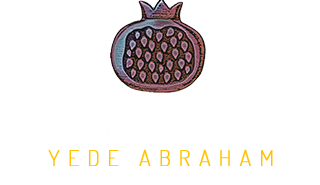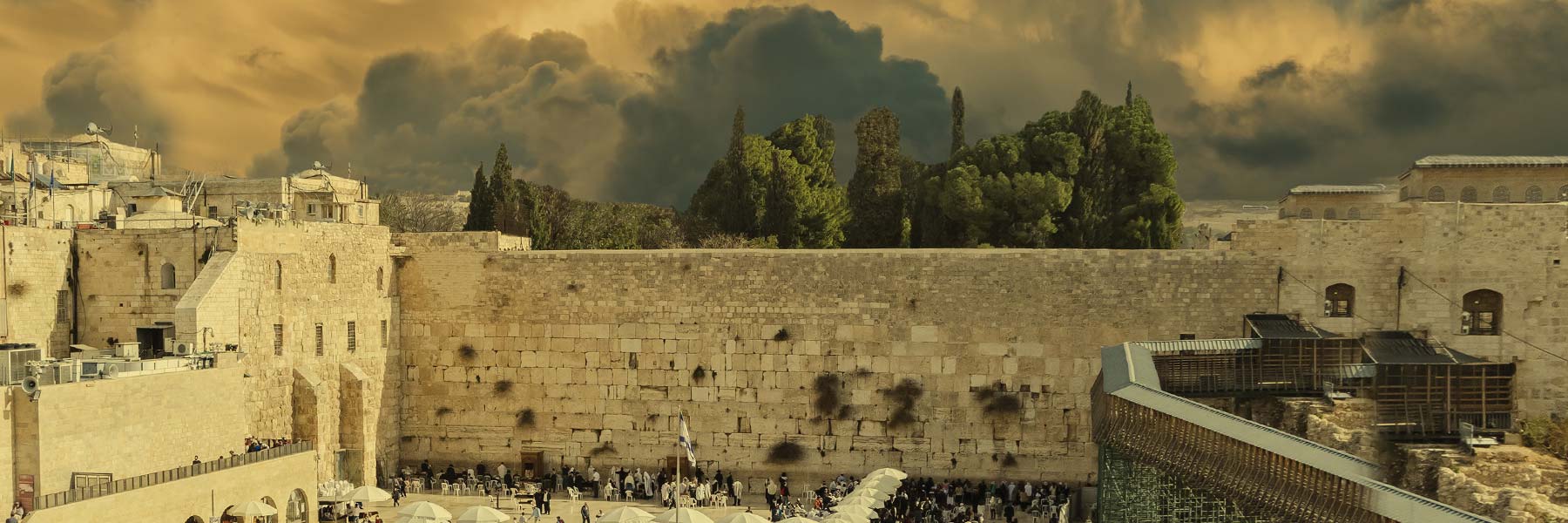Ellul – אלול
Additional Reading
- Selikhot in Accordance with the Western Sephardic Rite by Salomon Louis Vaz Dias, 2006
Arbit Motsa’e Shabbat:
- If Shabbat was the 29th of Ab (B,F,I) or 30th of Ab, Motsae Shabbat will be on the 2nd day of Rosh Hodesh (D,K,L), then
- After “Ledavid Barukh” we add Psalm 104, “Barekhi Nafshi.” for Rosh Hodesh.
- Announce before the Amidah: “Omerim Ya’aleh Veyabo.”
- In Amidah add “Ya’ale Veyabo.”
- Continue regularly, including “Shuba ‘Ad Matai.”
- On Rosh Hodesh, it is customary that all Kaddishim are said by the Hazzan.
Minhah
- If the first day of Rosh Hodesh Ellul is a weekday, (A,C,E,G,H,J,M,N)
- Regular
- No Tahanunim because it is the eve of Rosh Hodesh.
Arbit
- Start with psalm 104, Barekhi Nafshi, page 343 and conclude with Utshuat Tsadikim.
- Continue Arbit as in the book on page 130.
- Announce before the Amidah: “Omerim Ya’aleh Veyabo.”
- During the Amidah, add “Ya’aleh Veyabo.”
- On Rosh Hodesh, it is customary that all Kaddishim are said by the Hazzan.
Shahrit
- If Rosh Hodesh was on SHABBAT and 1st of Ellul (2nd day of Rosh Hodesh) is Sunday Hashcabot are not recited since they were recited the day before, otherwise they are recited by the Hazzan a half hour before the Service or earlier, if needed.
- Zemiroth are started with “Tehilat” in a festive melody.
- “Amonai Melekh” is chanted in a festive melody also.
- If the minyan is late, introduce the Kaddish with “Ribi Hananiah Ben ‘Akashia…” before “Barukh she’amar.”
- The Shira is sung on a somewhat faster tempo.
- In Amidah and Hazarah add “Ya’ale Veyabo.”
- Immediately after the Hazarah, the Hatsi Hallel is read, introduced with “Likro Et Hahallel.”
- At the conclusion of Hallel we recite Kaddish Titkabbal.
- Sefer Torah
- One Sefer Torah for Rosh Hodesh. The 2nd Aliyah starts with the last passuk of the 1st Aliyah.
- Kaddish after Sefer Torah.
- While the Sefer Torah is removed we sing “Ashre Yoshebe Betekha.”
- After “Uba Lezion” is completed, the Sefer Torah is returned IMMEDIATELY to the Hekhal.
- After offerings (if any) are made the Hazzan recites “Hashibenu Amonai.” Then, we remove the Tefillin, say Kaddish Le’ela, and start “Mussaf Rosh Hodesh.”
Mussaf
- Mussaf Rosh Hodesh. Bekol Ram (one ‘Amidah).
- En Kelohenu and Adon Olam melodies’ are festive.
Minhah
- In “Ashre” we sing “Tehilat Amonai.”
- In Amidah add “Ya’ale Veyabo.” One Amidah.
- All kaddishim are said by the Hazzan.
Shabbat Re’eh
New York: If Rosh Hodesh, (D, K, L) then Sifre Torah cloaks are festive because it is Shabbat and Rosh Hodesh.
Minhah
- Friday afternoon is regular.
Arbit
- After Minhah give Mitzvot for the Zemirot and Haftarah and, if Rosh Hodesh, precede it with an extra Mi Sheberakh for the Hashcabot.
- Kabbalat Shabbat is regular including Bame Madlikin.
- The Kaddish after “Amar Ribi El’azar” is recited by the Abel, if any.
- If Rosh Hodesh, the Kaddish, in festive melody, is introduced from “Lebetekha.”
- If Rosh Hodesh, before the Amida, announce “Omerim Ya’aleh Veyabo.”
- If Rosh Hodesh, the Yigdal melody is festive.
Shabbat Morning
- If Rosh Hodesh, Hashcabot are recited by the Hazzan half an hour before services or earlier if needed.
- If Rosh Hodesh, Zemiroth are started with “Tehilat” in a festive melody.
- If Rosh Hodesh, “Amonai Melekh” is chanted in a festive melody.
- If the minyan is late, introduce the Kaddish with “Ribi Hananiah Ben ‘Akashia…” after the “Great Hallel” (Hodu Le’el Hashamayim Ki le’olam Hasdo).
- If Rosh Hodesh, Kaddish in festive melody is introduced from “Haboher Beshire.”
- If Rosh Hodesh, in Amidah and Hazarah add “Ya’ale Veyabo.
- If Rosh Hodesh, Kedushah in Hazarah is in festive melody.
- If Rosh Hodesh, immediately after the Hazarah, the Hatsi Hallel is sung, introduced with “Likro Et Hahallel.
- At the conclusion of Hallel we recite Kaddish Titkabbal.
- Sefer Torah
- If Rosh Hodesh, two Sifre Torah:
- a- Reeh
- b- Rosh Hodesh Ubyom HaShabbat (Maftir: Numbers 28: 9-15).
- Kaddish after each Sefer Torah.
- While 2nd Sefer Torah is placed on the reader’s Desk and while the 1st one is removed we sing “Elokim Tseba’ot.”
- Kaddish after 2nd Sefer Torah and “En Ka’el Yeshurun” while the 2nd Sefer Torah is removed.
- If Rosh Hodesh, two Sifre Torah:
- Haftarat ‘Aniya So’ara Lo Nuhama (even if Rosh Hodesh because there should be seven haftorot of consolation between Tisha Be’Ab and Rosh Hashanah) and if Rosh Hodesh, then add 1st & last Pesukim of both Hashamyim Kis’i and Haftarat Mahar Hodesh (B,F,I). However, if the next day is the 1st day of Rosh Hodesh, then add only the 1st and last Pesukim of Haftarat Mahar Hodesh.
Mussaf
- If Rosh Hodesh, Mussaf of Shabbat Rosh Hodesh.
- If Rosh Hodesh, En Kelohenu and Adon Olam melodies’ are festive.
Minhah
- If Rosh Hodesh, in Amidah add “Ya’ale Veyabo.”
- If Rosh Hodesh, no perpetual Hashkabot, no Tsidkatekha, no Pessukim.
Yeme Hol, 2-27 Elul
Arbit
- Regular until and including the Amidah.
- Immediately after the Amidah the Selihot are read from pages 392 – 397, if there is a minyan.
- After the Selihot, Kaddish Titkabbal is recited.
- Psalm 130 “Mima’akim Keratikha” is said instead of Psalm 121 “Essa ‘enai.”
- Before “Tekubal Berahamim” the Shofar is blown if there is a minyan.
- If there is no Minyan, then Arbit is regular, no changes.
Shahrit
- Regular.
Minhah
- Regular.
Shabbat Nitsabim or Nitsabim-Veyelekh
New York: Consecration Shabbat (for the first building, 1730), Sifre Torah cloaks are festive.
Minhah Friday Afternoon
- Regular.
Arbit
- After Minhah Hazzan gives out Mitzvot for the Zemirot and Haftarah.
- Kabbalat Shabbat is regular including Bame Madlikin.
- The Kaddish after “Amar Ribi El’azar” is recited by the Abel, if any.
- New York: The Kaddish, in festive melody because of the Consecration anniversary, is introduced from “Lebetekha”
- New York: The Yigdal melody is festive because of the Consecration anniversary.
Shabbat Morning
- New York: Zemiroth are started with “Tehilat” in a festive melody because of the Consecration anniversary.
- New York: “Amonai Melekh” is chanted in a festive melody also, because of the Consecration anniversary.
- If the minyan is late, introduce the Kaddish with “Ribi Hananiah Ben ‘Akashia…” after the “Great Hallel” (Hodu Le’el Hashamayim Ki le’olam Hasdo).
- New York: Kaddish in festive melody for the Consecration anniversary, introduced from “Haboher Beshire.”
- New York: In Hazarah, Kedushah is in festive melody because of the Consecration anniversary.
- Sefer Torah
- One Sefer Torah.
- 23 Ellul, Nitsabim – Vayelekh (C,E,H,N) [explanation of Kebi’ot letters representing types of years]
- 25 Ellul, Nitsabim – Vayelekh (A,G,J,M)
- 27 Ellul, Nitsabim (B,F,I)
- 28 Ellul, Nitsabim (D,K,L)
- Bircat Hahodesh is NEVER recited for Tishri.
Mussaf
- New York: En Kelohenu and Adon Olam melodies’ are festive because of the Consecration anniversary.
Minhah
- Regular including the perpetual Hashkabot. However no Tsidkatekha and no Pessukim are recited if this Shabbat is the 28th of Ellul (D, K, L).
Arbit Motsa’e Shabbat
- Regular until After Amidah.
- We omit “Shuba ‘Ad Matai” (since Yom Tob will occur this coming week) and continue with “Veata Kaddosh.”
- If tomorrow is Sunday, 29 Ellul (D,K,L), we do not recite the Selihot here. They will be recited before Shahrit, otherwise as previous Motsae Shabbatot.
- In the Habdala, we omit the word “sheshet.”
- If we do not recite the Selihot, then Psalm 121 “Essa ‘Enay” is recited.
- The rest regular.
- If we do not recite the Selihot, then we do not blow the Shofar.
Selihot and Shahrit before Eve Rosh Hashanah
Selihot Morning
- Services Start at 6:30 in the morning (New York and Philadelphia). We used to start at 5:30. The Selihot should last about an hour.
- The Selihot are read without Tallet nor Tefillin.
- (Some now say the “Birkot Hashahar” 10 mins. before the Selihot.)
- The Selihot are found in the Rosh Hashana book.
- After page 1, we skip to page 4.
- On page 15 we sing “Tehillat Amonai” to the tune of Yede Rashim.
- Afterwards the Hazzan stands and recites the Kaddish plainly.
- On page 18 skip “Shebet Yehudah.”
- At the end of page 42 skip to page 48 and say “Atanu.”
- Afterwards skip to page 55 and say “Shomer Yisrael” until the end of page 59.
- (Some say Hatarat Nedarim privately after Shahrit).
Shahrit
- Zemiroth are started with “Tehilat” in the Yede Rashim melody.
- “Amonai Melekh” is chanted in a Rosh Hashanah melody.
- Rest of Shahrit is regular.
- After the Hazarah, no Tahanunim are recited (since it is the eve of Rosh Hashanah).
- “En Kelohenu” is sung to the Yede Rashim Melody.
- “Barukh Amonai” and “Alenu” are sung to the Rosh Hashanah melody.
- If Kaddish for Abel needs to be recited, then precede it with the pesukim.
- After Tekubbal announce: “Services this afternoon will be @….”

